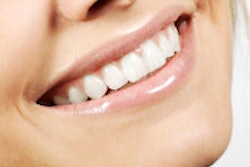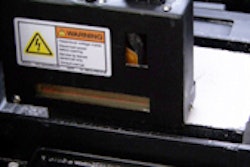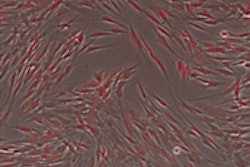Stem cells derived from deciduous canine teeth and dental pulp can be grafted and produce bone regeneration between parents and offspring, according to a study in Cell Transplantation (2011, Vol. 20:7, pp. 1003-1013).
"Bone defects can occur for a number of reasons, and autogenous bone grafting -- using the patient's own bone -- has been a standard approach to treatment," stated study author Yoichi Yamada, DDS, PhD, of the Center for Genetic and Regenerative Medicine at the Nagoya University School of Medicine, in a press release. "However, considering severe invasiveness in self-donor bone sites and the limited supply of autogenous bone, alternative donor sources are needed."
Previous studies have shown that oral and maxillofacial dental tissues contain a variety of stem cells, such as dental pulp stem cells and stem cells from deciduous teeth, Dr. Yamada and his colleagues noted.
"Stem cells from human exfoliated deciduous teeth were identified as a novel population of stem cells, capable of differentiating into various cell types, such as osteoblasts, odontoblasts, adipocytes, and neural cells," Dr. Yamada explained.
Their study extracted deciduous teeth from canine puppies and grafted them onto parent canine mandibles as an allograft. After four weeks, bone defects were prepared on both sides of the host mandible. The newly formed bone was evaluated at two, four, and eight weeks. When compared with controls, the study group demonstrated well-formed mature bone and neovascularization.
Stem cells derived from dental pulp "display increased immunosuppressive activity when compared to bone marrow mesenchymal cells" and will likely have "immunosuppressive activity with potential clinical applications in allogenic in vivo stem cell transplantation, particularly for calcified tissue reconstruction," the study authors noted.
This preclinical study could pave the way for stem cell therapy in orthopedics and oral and maxillofacial reconstruction, Dr. Yamada concluded.



















